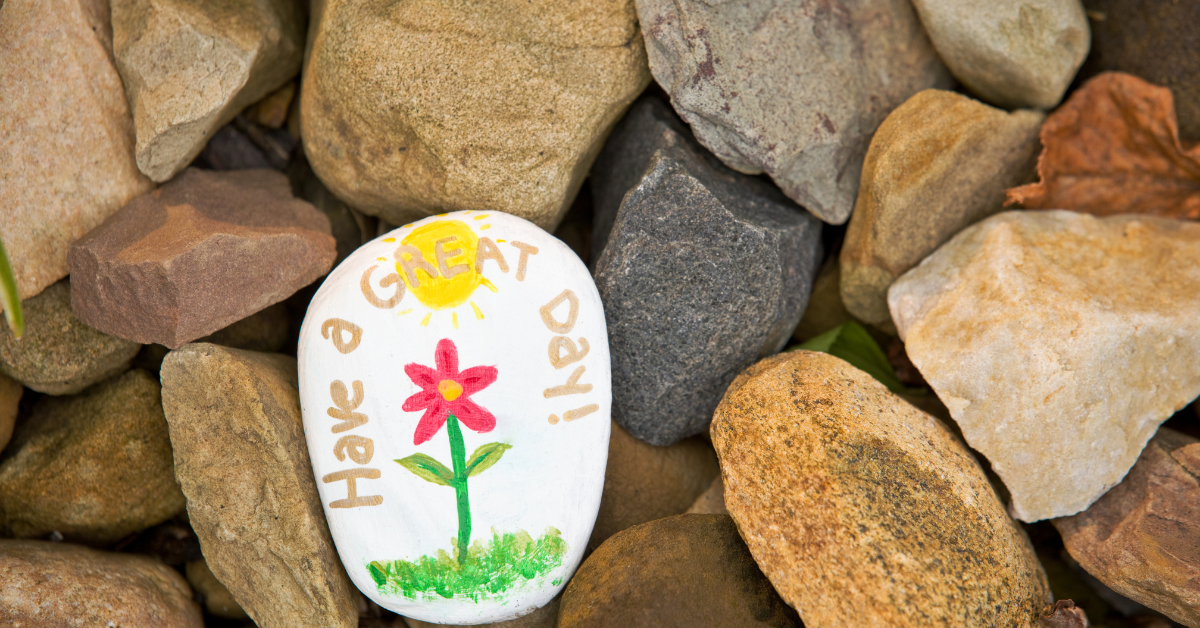113. From Suicidal to Thriving, a Personal Story with Sara Nicole Tynan
In this week’s episode, Carrie interviews Sara Tynan, author and wellness educator, about her journey from mental health struggles to wellness, and how her experiences inspired her to help others.
Episode Highlights:
- Sara’s transformation from battling mental health issues to finding wellness with God’s help.
- How spiritual, physical, and mental health contributed to Sara’s recovery.
- The role of scripture affirmations in Sara’s life and how she teaches others to use them for mental wellness and overcoming insecurities.
- The inspiration behind Sara’s book “So That” and her role as a wellness educator.
Episode Summary:
Welcome to episode 113 of Christian Faith and OCD! I’m thrilled to feature Sara Tynan, the author of So That and a dedicated wellness educator. Sara’s inspiring journey from struggling with mental health and substance abuse to finding fulfillment and healing is a testament to the power of faith and perseverance.
Sara’s path to wellness wasn’t immediate; it involved overcoming significant challenges, including mental health issues and substance abuse. Her turning point came during a college crisis, where she hit rock bottom, prompting a decision to make drastic life changes. With the support of loved ones and a commitment to healthier habits, Sara moved away from medications and substance use, eventually finding peace and stability.
Her latest project, the podcast “Fulfilled,” is a continuation of her mission to share tools and insights for a fulfilling life, grounded in spiritual growth and God’s promises. Sara emphasizes the importance of scriptural affirmations, like Philippians 4:13, in transforming negative thought patterns and aligning one’s mindset with Biblical truth.
Sara’s story is a powerful reminder of the strength that faith and practical changes can bring in overcoming life’s challenges.
Related Links and Resources:
Sara’s Book, So That: A Story of God’s Glory
Sara’s website: saranicoletynan.com
Her Podcast: Fulfilled
Click for another inspiring story:
Summary
Welcome to Christian Faith and OCD episode 113. Today on the show I have with me Sara Tynan. She is the author of the book “So That” and a wellness educator. Her passion for teaching comes from her own personal experience with her mental health struggles. We’re going to talk today about her story, some things that she has picked up along the way, as well as things that she teaches to individuals that she works with now.
________________
Carrie: Sara, welcome to the show.
Sara: Hi, thanks for having me.
Carrie: What kind of led you on this journey to become a wellness educator and author and just tell your story?
Sara: My own journey to where I am today, which is, I’d like to think I’m pretty well mentally, physically, and spiritually, but that didn’t happen overnight. It happened over a course of years and I went through a lot of twists and turns.
I got to a point where I feel like I’m doing really good, and I don’t think that I’m on the other side of this for no reason. I think everything God does has a purpose. I felt like God was saying, “Okay, well, if you feel like you’re well, then use what happened to you to help other people.” I just wrote it all out. I wrote down everything that happened to me and through me, and that turned into a book. After a couple of years of that book just kind of being there, I was like, there’s still more, so then I created a mental health conference. And even after that, I just kept feeling that phrase.
There’s still more. There’s still more. I redid my book and added a devotional to the back of it because a devotional was one of the big tools that helped me in my journey. That’s where I am today. I just launched my podcast in January, which is just another resource for people to go to find free tools. Some of the tools that I’ve learned along my journey.
Carrie: What is your podcast called?
Sara: It’s called “Fulfilled” and it’s all about living this fulfilled life and clinging to the promises that God has yet to fulfill.
Carrie: Yes. That’s so good. So many of us are in the waiting on the journey where we desire to be where God desires us to be, and really that’s a lifelong process of sanctification, which is really just a big word for becoming more like Christ. We’re all on the journey somewhere. I really do believe that the Bible has direction for us that if we are even slightly farther along than a brother or sister in the journey, it’s our responsibility to help lift them up to where they need to be.
What do you feel like was a rock bottom moment for you as you were going through this?
Sara: The chapter in my life and the chapter in my book that’s literally titled “Rock Bottom.” I won’t give away too many details because obviously you’ve got to read the book, but I’m literally an open book. I mean, I love sharing my story, so I’ll share what I can.
The rock bottom happened when I was at college. I had been drinking a lot. I had been dabbling in a bunch of different marijuanas and marijuana types, even some of the synthetic stuff. I was also heavily medicated. I was on medications for bipolar and insomnia. I was on another one that kind of helped with the anxiety that came with bipolar.
All these medications should not be mixed with anything, especially alcohol, especially synthetic marijuana. All of those things led me to get to this place where I was suicidal. I was cutting my wrists. I was ready to end it. I tried to take a bottle of pills, and somebody walked in. That somebody was a friend and she said, “All right, I see what you’re doing. If you don’t get your mom on the phone, I’m going to call her.”
My mom came and got me. I checked into a mental institution that’s no longer around. I don’t even remember the name of it, but I know that they shut down a couple of years ago. They had both inpatient and outpatient. I think we live close enough that I was able to do the outpatient.
I would go into this facility and I forget how long the program was supposed to be, but a couple of days in, I was like, “This is not for me. This is not the life God wants me to live.” I was sitting in a circle. We had group therapy, something that happens frequently in the mental institutions. We’re sitting in this group therapy session and it was women older than me and they were all talking about their problems.
I remember just sitting there thinking, I don’t fit in with these people. I don’t have a hard life. Nothing bad happened to me. I think I just need to get my act together. It was just this moment where I was like, “This is it. I can’t ever do this again. I do not want to feel this way. I don’t want to live this way.”
I went home and I kind of looked at all the things that I had been doing in my life and not doing. Even my dad was like, “Sara, you’re not really active like you used to be in dance and you’re not moving your body at all. All the alcohol you were drinking, you’re consuming a lot of junk food.”
We looked at my physical situation. I was very unhealthy. I wasn’t eating nourishing foods. I wasn’t moving my body, and then I looked at my spiritual situation. I wasn’t reading my Bible. I would go to church every now and then because my parents made me when I came home from college. I just kind of reevaluated where I was mentally, physically, and spiritually.
I implemented tools. Those tools took me to this place where my doctor said, “Sara, you no longer need to be medicated for your mental illnesses.”
That was 12 years ago, and I haven’t had medication for mental health since.
Carrie: That’s huge. I think that was a wake up call for you in terms of I’m sitting in this circle with these women who are older than I am, and if I don’t change something about what I’m doing, if I don’t live my life, that’s where I’m going to be in 10 years, 20 years.
Talk to us about the marijuana, the synthetic marijuana. There’s a lot of that stuff going around now and people just see it as [fine], there are some Christians that will even tell you, “It’s a plant. God gave it to us. We should use it in the ways that we see fit.”
I’ve known a lot of clients who have struggled with things like sleep. Like you had said, insomnia was a big deal for you at one time, and they’ve just said, “Hey, this is the only way I can wind down at night. This is the only way that I can go to sleep.” What was your awareness or thought process on going from using to not using?
Sara: Actually, I’m glad you said that because all of those thoughts that you said, that’s the thought that I had.
I’ve been a believer my whole life. When I was really at my rock bottom where I was drinking and smoking, it was all like party usage. It was all just like, “Let’s get blackout. Just forget all our problems, so let’s have fun.”
That was my use in college. But then even after I was, this was actually a couple of years ago.
I got back into using marijuana, but I was using it for wellness purposes as is talked about. I did think, it’s natural. I bet Jesus would have smoked pot when he was here on earth. Those are the things I said and believed for two years until I was baptized by the Holy Spirit and had true conviction.
You talked about sanctification. That’s I believe when I finally had this conviction where God was like, “I want more for you and I want you to live the way that Jesus lived, so let’s change some things.” What took me from using marijuana to not using marijuana was what God said to me was, “You trusted me to heal your mind before. Can you do that again with this?”
When God originally healed me, when I got off of my medication, my struggles were bipolar and insomnia, but a couple of years ago, I started developing really, really bad anxiety. My son got really sick and I was planning this mental health conference, and it took a toll on my mental health.
My anxiety was through the roof. My heart was racing. If my phone buzzed, I would literally jump because I was so anxious about everything, so I started using marijuana. I would take tinctures. I would smoke. I would get edibles. I would go to the Delta eight, Delta nine, whatever it took to take me from this very hyper anxious person.
Where it took me was sunken into my couch, not being present with my family. Eventually, after that conviction came into my life, I felt like God said, “You don’t need this to heal. You need to rely on me and the things that you’ve done in your past to heal.”
Even though I felt that conviction, I want to be totally honest. I continued using marijuana up until last December. It took me realizing that I was completely disappearing from my family because I thought that was right. It took me going, “Oh my gosh, I didn’t realize how far I had gone with this stuff.”
I went and got some of the legal stuff. It’s called Delta 8 or Delta 9. I justified it in my head by saying, “This is legal. It’s not wrong. I’m not breaking the law. This is natural. It’s what God would have wanted me to do. I believe those lies.
It’s legal. I took it. I became so paranoid, which is very common. I was worse off with my anxiety than I was before, and the purpose I was taking it was to help with my anxiety. That was a wake-up call for me. I was like, “What am I doing?” I’m so desperate to get well, to not have anxiety that I’m doing something that’s taking me in the opposite direction.
That was one of my bigger wake-up calls when I was like,” Oh God, you really are trying to get my attention here.”
In January of last year, our church did this series called “A Year From Now.” It was really, really cool. My pastor brought out our baptismal, the trough that we baptize people in. It was empty and he had everyone write down on a piece of paper some things that they wanted to surrender to the Lord: Habits, addictions, whatever. I wrote down marijuana and we put it in the baptismal and then he threw dirt on it. It was a symbol of you have to die to yourself if you want to follow Christ. Right? I decided to give up marijuana and trust that God would continue healing my anxiety. It’s so cool because he absolutely did.
We wrote letters to ourselves and sealed it, addressed it, and our church sent it out. You guys, I got the letter last week and it was like the things that you wanted to be where you wanted to be a year from now and it was just amazing to see [that] I went a whole year without relying on marijuana for my anxiety, and I haven’t had anxiety.
Carrie: That’s awesome. I feel like the things that you were doing like sleeping well and eating well and moving your body, exercise can be really great for us in terms of making us be ready to wind down at the end of the day and to de-stress definitely helps a lot. It’s truly like a God thing that we’re having this conversation because I made a decision at the end of last year to make some health changes this year.
I just had let my health go by the wayside physically and was just eating whatever was convenient and in front of me instead of really taking the time to plan and be intentional about what I was eating. I had kind of fallen away from exercise routines. I’ve just noticed how much better I feel making those changes when I eat well and when I exercise and how that has had truly a ripple effect in other areas of my life.
It’s had ripple effects that I can see in my business in terms of planning and intentionality. It’s had ripple effects in my spiritual life and other places. I think a lot of times we know what we need to do. Taking that first step really is the hardest or sticking with it once we’ve taken that first step is amazing, but you have to kind of set that intentionality and to say, I’m going to take away all of the excuses that I have in my life. I need this.”
One of the things I processed was when I’m really stressed, it seems like I’m running to sugar or caffeine. In the process of shifting my diet and having a lot less sugar in there now and less instead of just being so carb-laden, like the average American diet is, it really has helped me realize, “Oh, I don’t need to depend on it.”
Whether we like it or not, sugar or caffeine can become our substance that we rely on instead of saying like, “Okay, God, I’m stressed. I’m overwhelmed. I don’t know what to do about the situation. How do I move forward?” Instead of engaging in some of those healthy habits, we turn towards what’s comfortable and familiar with us.
Sara: Whether that’s sugar or weed or alcohol.
Carrie: Yes. It’s also common for a lot of people to just say, “Well, I just have a glass of wine at night to wind down,” but then they don’t realize the accumulation of that over time.
When we had talked before, you told me about using scriptural affirmation with clients. Would you share with us, how you utilize some of those? I think a lot of times people use affirmations that aren’t Christian and they’re just like, “I am strong and I am powerful and I can do anything I set my mind to.” Some of them are just completely bogus and not true and kind of like we’re trying to inflate ourselves in some way or even could give into pride.
How do you utilize the scriptural affirmation with the people you work with?
Sara: I love affirmations. I used to teach a class. It was a yoga class. We would get into a stretch and then while we were in the stretch, we would say, “I am”, and then you fill in the blank, whatever the theme of the day was. I created this. It’s like a curriculum because we met every single Tuesday for like a year and a half.
Every Tuesday, I would have to come up with my plan for what I was going to teach, what the affirmations were going to be. I got to this place where I ran out of affirmations. I was just pulling them from Pinterest, and then I was like, “What about grabbing the Bible?” I literally just grabbed my Bible.
I opened it up, and I just hold a random scripture, and I was like, “What does this say about me about who I am in Christ?” An example I like to use is most Christians know: Philippians 4:13: I can do all things through Christ who strengthens me.
You can break that up into multiple affirmations, and one of the affirmations was, “I am strong.” That’s a true affirmation. My question is, where do you get the strength? The Bible, Philippians 4:13 tells us we get it from Christ, so when you say your affirmation, you’re thinking I am strong. You can keep it going by saying Christ strengthens me or I am strong because Christ strengthens me. And so you take what’s in the Bible and you say it as if it’s your words because you’re believing that what the Bible is, is truth. That’s part of being a Christian. You believe that that word is breathed out by God and it’s true. What the Bible says about you is true. And a lot of the struggles I had when I was harming myself was what I call stinking thinking. It’s where I start to tell myself I’m not good enough. I’m not pretty enough.
I’m not strong enough. I can’t handle this. Those are lies. And I don’t serve the father of lies. I’ve served the Lord. And the Lord says that I am strong. That’s what the Bible says. That’s one of my biggest tools is scripture-based positive affirmations. I’ll write them on my mirror. It changes from season to season. For example, there are seasons where I struggle with feeling pretty enough, or there are seasons where I struggle with feeling smart enough. That’s when I lean into what the Bible is saying about me. Another one I like to use is Proverbs 31, all about being the wife that God’s called me to be, being the mother God’s called me to be.
Carrie: I was going to ask you about kind of insecurities about physical appearance, like, are there certain ones that you use when you don’t feel pretty enough? Do you focus on just being beautiful internally?
Sara: Yes. Is that another part of Proverbs 31 where it talks about like the words of your mouth? What makes you pretty is your heart. I know there’s a verse, I can’t think of it off the top of my head, but it does speak to that. It does say that your appearance is worthless if what’s in your heart is hate. The words of your mouth make up what you look like. I cannot think of the scripture, but I know that that’s there and that’s one that I will lean into.
It’s like, I may have a breakout today, but that does not define who I am in Christ because my heart is still beautiful.
Carrie: Usually, towards the end of our episode and our time together, I like to ask people a couple of different questions. One is, what would you tell your younger self that was just kind of like living the typical college life, if you want to call it that, just living for the moment, partying, junk food, staying up late, not getting enough sleep, all of those things. What would you want her to know?
Sara: The thing that I was told when I was struggling a couple years ago, which is there’s still more. There’s still more goodness for you. God has a plan for you, which was spoken over my life when I was really young, Jeremiah 29:11, that he has plans for good and there’s a future for hope for me.
I heard that growing up, and I ignored it when I was in college, I thought this is all God has for me. This is my life. I am bipolar. I can’t sleep. I can’t do anything right. I’m not good enough. I believed all those lies. So if I could just speak that into myself, there is still more for you, Sarah, God has so much in store for you.
You just have to get through this short season. You will be strengthened by it. When you’re on the other side of it, God is going to use this storm and he’s going to turn it into the most beautiful rainbow you can ever imagine. I was actually just thinking about this because we didn’t talk much about my struggles a couple of years ago, but my son was really sick. I didn’t think I was going to get through it. I was starting to feel very anxious. That’s why I turned to the marijuana, but there was a phrase that someone said to me that I just want anybody out there who’s struggling to kind of hold onto this. It’s just two words. It’s for now. This trial that you are facing right now, this storm, it’s only for now. It will strengthen you and God will use this pain for your purpose.
Carrie: I think one of the hardest questions and struggles that people have is, “Am I always going to feel this way? We can get really stuck in that. It feels so terrible, horrible, awful. I can’t stand one more moment. Am I always going to feel this way?”
I think one of the things that we want to promote on the show is hope. That now you feel this way and you know what? Tomorrow you may feel this way or two weeks. You might, but over time, that doesn’t mean you’re going to feel this way forever. There is hope. There is help for our physical bodies.
There’s help for our emotional health and there’s healing from past trauma. There’s so many things that I would absolutely agree with you and stand on and say there’s more for people out there now than what they’re facing. That God wants believers to be empowered and to be his light in the world. If we’re kind of just covering in a corner saying, “I can’t do this” then it’s hard for us to be able to shine that light. That’s part of my passion is helping people, you know, see that confidence in Christ. I think it’s so important.
Sara: I love that. I’m really glad I found your podcast because that’s everything I stand for.
Carrie: Yes. I want to check out yours too since it’s new and kind of see how it’s flowing and listening to your story.
We’re going to put Sarah’s website in the show notes and we’ll find your podcast too. That way people can connect with you.
Thank you so much for sharing your story, really from a place of being at rock bottom and suicidal to now just thriving by the Holy Spirit. Thank you for sharing that.
——–
Thank you everyone else for listening.
Christian Faith and OCD is a production of By the Well Counseling. Our show is hosted by me, Carrie Bock, licensed professional counselor in Tennessee. Opinions given by our guests are their own and do not necessarily reflect the views of myself or By the Well Counseling.









